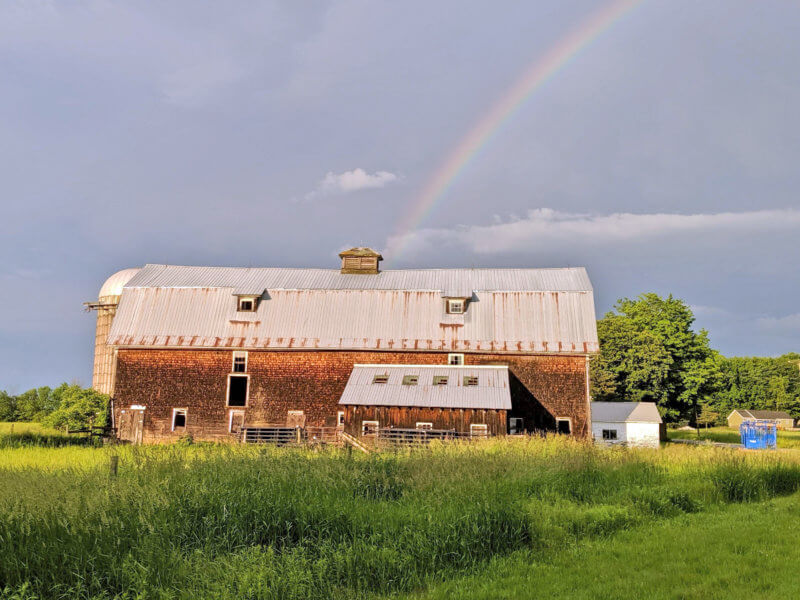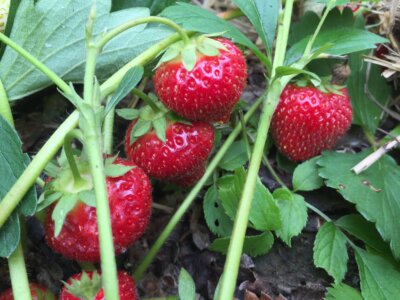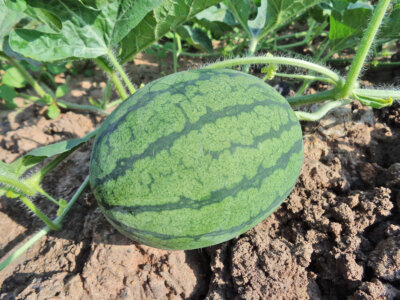Most Charlotte farmers have to supplement their income
The Charlotte Land Trust this week released a study it commissioned to better understand the agricultural landscape in town and identify the roles conservation can play in the future of farming here.
Authored by the Center for Rural Studies at the University of Vermont, the Charlotte Agricultural Landscape Study shows that Charlotte is home to a robust and diversified farm community of at least 77 agricultural operations, almost all of which have shifted from dairy farming and moved toward raising meat animals and fodder, as well as specialized operations like berry and flower farms and CSAs that depend increasingly on direct-to-consumer sales.
At least 19 farms sell some of their products directly to the public.

The study also highlights that, while enrolled parcels in the state’s Current Use Program increased between 2015 and 2020, the total number of enrolled agricultural acreage decreased. The average number of acres owned by a farmer in Charlotte was 100, slightly lower than the state or county average, and the majority of farms reported only one employee on a year-round basis.
Charlotte is still a strongly supportive community for farming, including for new, younger farmers. However, key findings also point to significant challenges: the high cost of farmland in an increasingly affluent area where development is occurring; a lack of affordable housing for farm employees; a reliance on off-farm employment and earnings to keep many farms financially viable; confusion over town policies and regulations, especially on farms with conservation easements; and some tensions between farmers and non-farming residents.
Kate Lampton, president of the Charlotte Land Trust, said the study contains no surprises but does provide clearer direction moving forward. Whereas in the past land trust’s emphasis had been simply on “conserving the land before the developer gets it,” now it also will be to support the farming economy.
“We have these farmers coming in who are very entrepreneurial, with a lot of interesting focus on techniques and soil and marketing and all that. So, what can we do to not only conserve the land, but what can we do to support the industry on that land? I think that’s going to be our biggest push,” she predicted.
The study employed a mix of qualitative and quantitative methods to gain as full a picture as possible of agriculture and conservation in Charlotte. While it was impossible to pinpoint the exact number of farming operations due to the absence of a comprehensive database of farms, among other factors, the study did identify most of the farming operations in Charlotte.
In total, out of the 77 agricultural operations, 40 farm owners or operators participated in a specially designed survey for the study, capturing 51.9 percent of the known agricultural operators in Charlotte. They answered questions about demographics, land use, conservation practices, products, sales and viability. In addition, seven farmers from diversified operations took part in two different focus groups, while others, including town officials, Charlotte Land Trust board members and other community stakeholders, provided information to the researchers.
A key finding of the study is that two-thirds of the survey respondents identified conservation as helping them to maintain financial stability and viability in their operations, while some farmers, including Adam Hausmann of Adam’s Berry Farm, said that they wouldn’t have been able to purchase their farms in Charlotte without help from land trusts and other sources, including the Charlotte Conservation Fund.
Currently, Charlotte Land Trust holds 15 conservation easements on properties in Charlotte — some, but not all of them, on farms.
“As there is more development in Charlotte, I would like people to recognize the value of conservation and farming in their landscape and what makes it unique, even in the number of small farm stands that exist here,” Hausmann said.
He hopes the study will generate even deeper community support and attract more young farmers who will get help purchasing conserved land.
The study depicts how financially challenging farming can be. About one-third of the surveyed farmers reported income from other revenue streams as their primary source of income, “while the other two-thirds had at least one principal operator with off-farm employment income sources, indicating a need for additional sources of income.”
The surveyed farms generated less than a third of a household’s income in 2019, and 46 percent of the respondent operators said their farms generated less than $50,000 in gross sales, although 21 farms reported sales of more than $50,000 in 2017.
On average, the study reports that “farms in Charlotte earned a net income of less than $10,000 or experienced a net loss in 2019.”
The Center for Rural Studies offered five recommendations for the Charlotte Land Trust:
“Develop community programming in collaboration with farmers and local town leaders to bridge connections and build a greater understanding of agricultural operations within the community.”
“Consider potential avenues for the Charlotte Land Trust to coordinate education about town planning, zoning ordinances, and regulation while also engaging town leadership to identify ways to address farmer concerns about consistency and transparency.”
“Provide direct support to local farmers interested in learning more about land conservation and structuring easements while exploring ways to incentivize farmers to adopt sustainable land management practices and begin transition planning within the context of a changing climate.”
“Explore strategic farm properties for conservation that would promote connectivity between previously conserved properties.”
“Convene networking opportunities to meet the needs of today’s Charlotte farmers by re-imagining the concept of the Grange for farmer-to-farmer support.”
Lampton said that as a wholly volunteer-run organization, land trust will of necessity partner with organizations like the Charlotte Grange and others in the community to address some of the concerns, gaps and opportunities identified in the study.
“There was some discussion in the focus groups about frustration at dealing with planning and zoning,” Lampton said. “We aren’t going to be the ones necessarily saying we want to propose these changes to the regulations.”
Lampton will give a Zoom presentation on the study through the Charlotte Senior Center at 1 p.m. on March 23. The event is co-sponsored by the Charlotte Grange. The study is also available on the Charlotte Land Trust website.
Related Stories
Popular Stories
If you enjoy The Charlotte News, please consider making a donation. Your gift will help us produce more stories like this. The majority of our budget comes from charitable contributions. Your gift helps sustain The Charlotte News, keeping it a free service for everyone in town. Thank you.
Andrew Zehner, Board Chair








